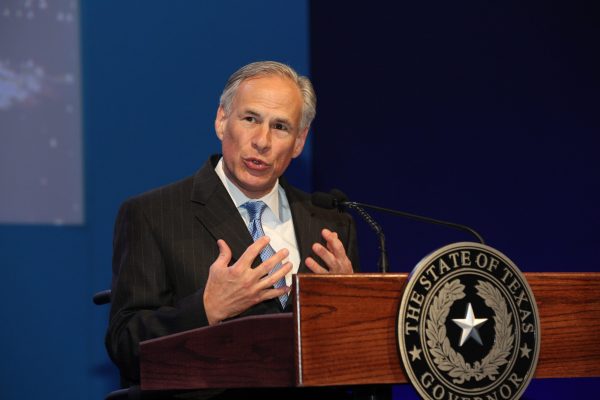Some are tentatively considering 2024 runs for president, some are simply serving their states, but all of them have responded in some form to the Supreme Court’s historic ruling earlier today. Here’s how some of the most well-known Republican governors have reacted.
Texas Governor Greg Abbott
Texas is one of the thirteen states with so-called trigger laws in place set to take effect either immediately or with certain conditions after the Supreme Court ruling.
Texas’ law will take effect 30 days after the Supreme Court’s formal judgement, which is typically issued within 30 days of their opinion being issued.
Texas legislation signed last year by Governor Greg Abbott bans abortion from conception with limited exemptions for risk to the mother’s life, according to the local NBC DFW.
Abbott also issued a statement of his own following the opinion:
Texas is a pro-life state, and we have taken significant action to protect the sanctity of life. Texas has also prioritized supporting women’s healthcare and expectant mothers in need to give them the necessary resources so that they can choose life for their child. I signed laws that extended Medicaid health care coverage to six months post-partum, appropriated $345 million for women’s health programs, and invested more than $100 million toward our Alternatives to Abortion program. This critical program provides counseling, mentoring, care coordination, and material assistance, such as car seats, diapers, and housing to mothers in need.
Virginia Governor Glenn Youngkin
Virginia does not have a trigger law and its Republican governor is a relative newcomer to politics. He ran as a practical conservative pledging to support Virginia’s parents on issues they care about most.
Speaking to The Washington Post, Youngkin said he would push for a 15 week abortion ban, but he would accept a compromise up to 20 weeks in order to work with the state’s Democrat legislators.
Youngkin also told the Post he would accept exceptions for rape, incest, and when the mother’s life is in danger.
He also issued a statement after the opinion was announced.
I’m proud to be a pro-life Governor and plan to take every action I can to protect life. The truth is, Virginians want fewer abortions, not more abortions. We can build a bipartisan consensus on protecting the life of unborn children, especially when they begin to feel pain in the womb, and importantly supporting mothers and families who choose life.
Florida Governor Ron DeSantis
DeSantis had recently signed a law banning abortions at 15 weeks with no exceptions for rape or incest. It is set to take effect next week.
DeSantis issued a statement committing to his support for that law and praising the Supreme Court’s decision.
By properly interpreting the Constitution, the Supreme Court has answered the prayers of millions upon millions of Americans. pic.twitter.com/CsPFpNnUPk
— Ron DeSantis (@GovRonDeSantis) June 24, 2022
Georgia Governor Brian Kemp
Georgia passed and briefly enacted a fetal heartbeat law that restricted abortions once a heartbeat can be detected, typically around 6 weeks.
Federal courts suspended the law, declaring it unconstitutional. With the Supreme Court’s ruling, the 11th Circuit Court of Appeals in Atlanta will allow the law to go back in effect.
In a statement on Twitter, Kemp called the decision a “historic victory for life”.
— Governor Brian P. Kemp (@GovKemp) June 24, 2022
Arkansas Governor Asa Hutchinson
Arkansas is another of the thirteen states with trigger laws on the books.
Effective immediately, performing an abortion is illegal in the state punishable by up to 10 years in prison. There are no exceptions for rape or incest, something Hutchinson has said may be reevaluated, but there is an exception to save a woman’s life.
Hutchinson, who recently announced he is considering a 2024 run for president, signed the law in February of 2019. He was in attendance as Louisiana Attorney General certified the state’s trigger law.
He said during the signing ceremony, “Personally, I’m grateful for the court’s ruling today because I fought for a number of decades for greater protections for the unborn throughout my political life and as governor. “I’m gratified by the court’s decision because the people of Arkansas have declared the public policy of this state is to protect the life of the unborn.”

